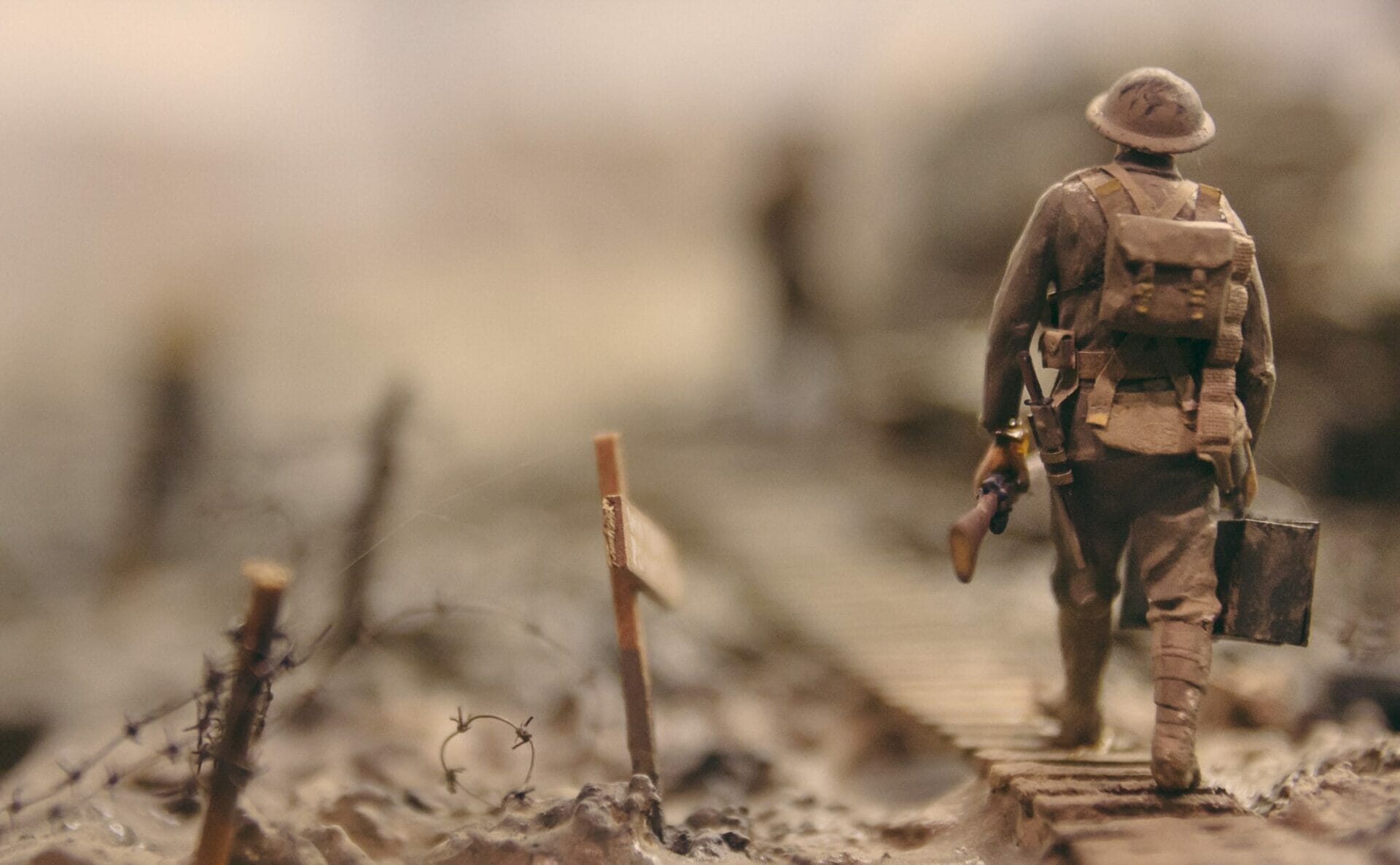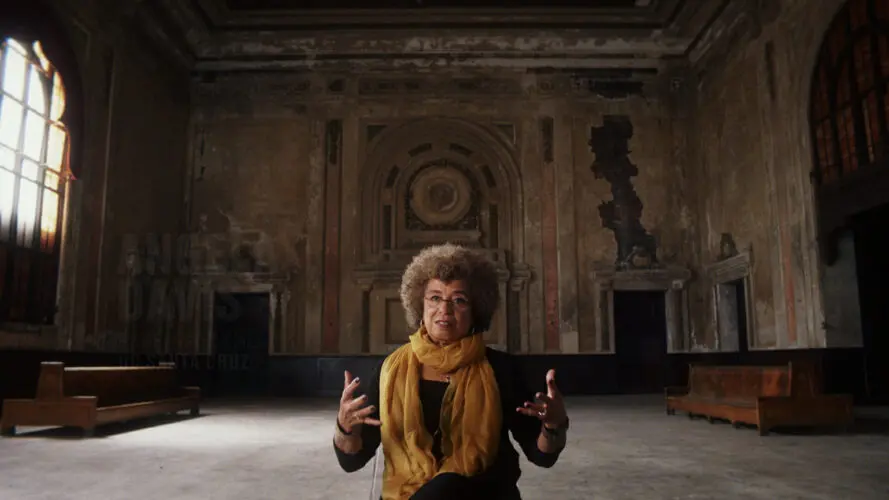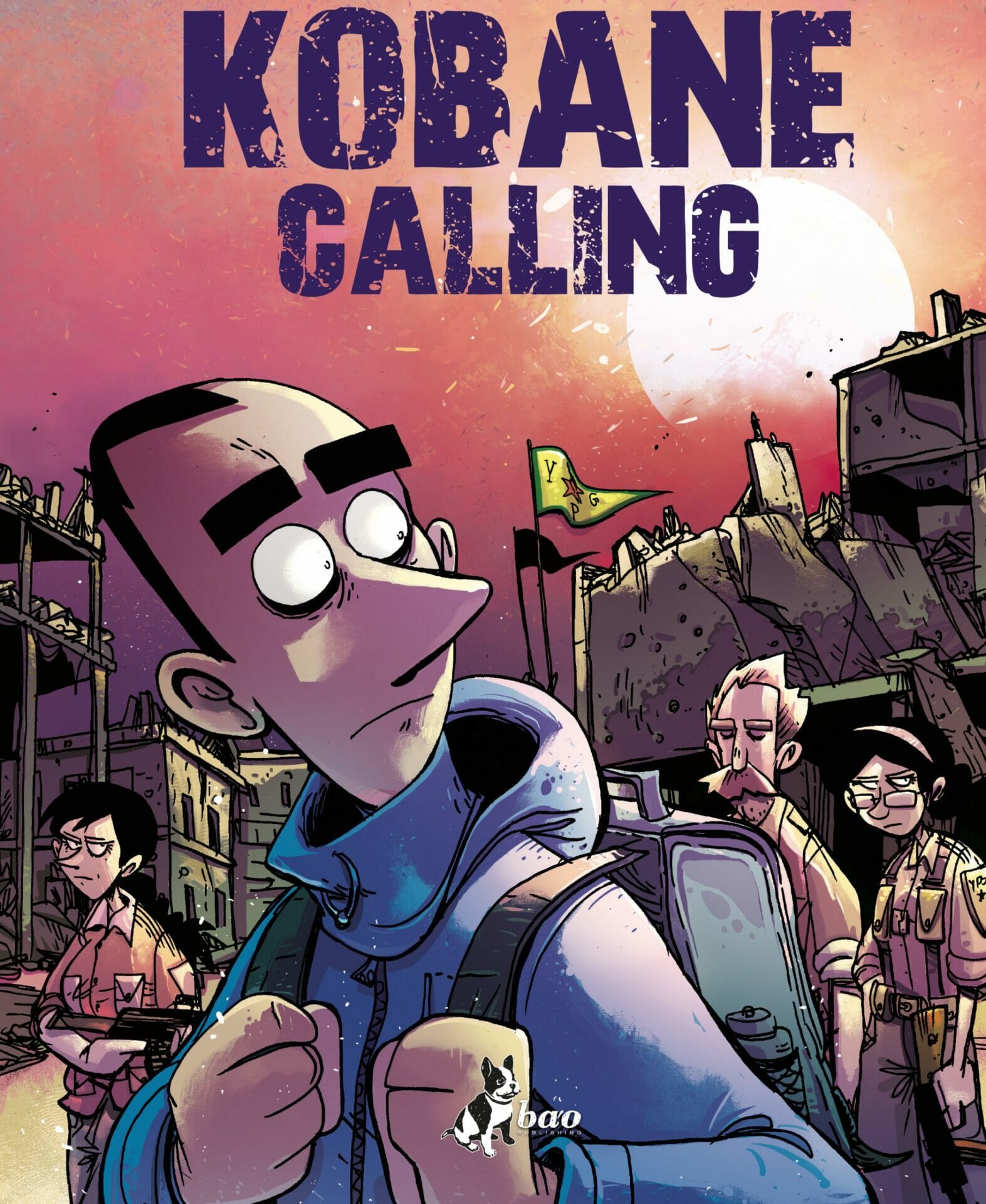
Kobane Calling | Zerocalcare reports on a fight for an ideal
Author
Year
Format
By
Kobane Calling is a book of graphic reportage by the Italian comic and graphic artist Michele Rech, better known by his pen name of Zerocalcare (The Armadillo’s Prophecy, Forget my Name). It tells about his trips from Rome to Turkey, Syria, and Iraq among the Kurdish leftist defenders of Rojava, or the Autonomous Administration of North and East Syria. The first part of the work came out in January 2015 in the Italian weekly Internazionale. In 2020 the updated version Kobane Calling Today came out, printed by BAO Publishing as the first edition. In 2021 a podcast version came out.
Kobane is a Syrian city on the Turkish border. It had been a battleground between Islamic State (IS) militants and Kurdish fighters since September 2014. Two Kurdish protection units, the YPJ (all female) and YPG (mixed), held back the Daesh (IS) siege. As a result, on 26th January 2015, the Kurds drove the IS out of the city.
The author traveled to Rojava with the Roman convoy bound for Kobane. He traveled with a group of people from several community centers with two goals in mind. Ensuring humanitarian aid and making an information campaign about what was happening.
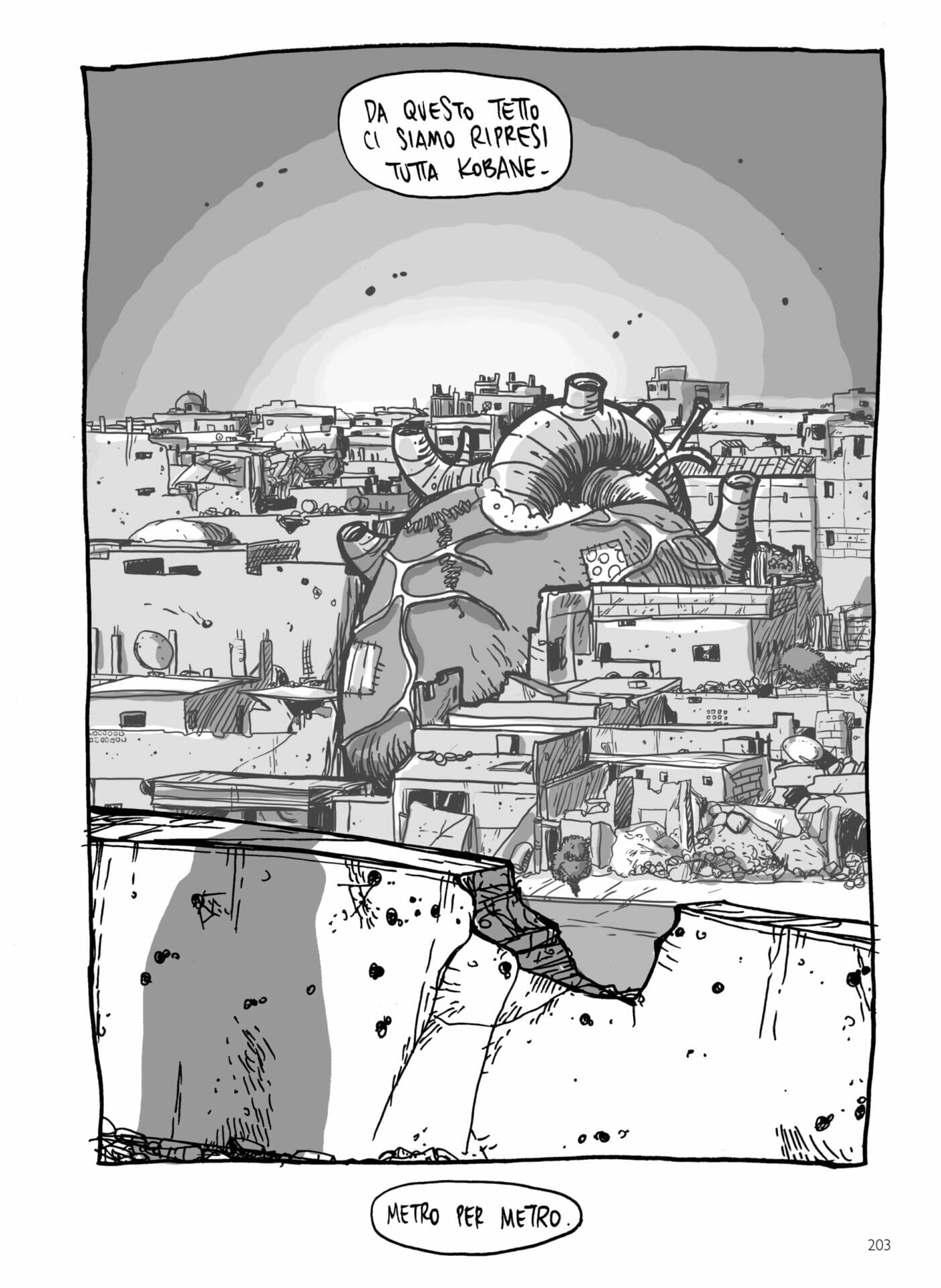
Rojava calling
Zerocalcare is very fond of the place where he lives, the neighborhood of Rebibbia in Rome. However, he went to Rojava following the drive of emotions and feelings he couldn’t yet understand. He depicts it as the pixelated version of his heart, lying in Kobane. By the end of the comic book, it will be clear that Zerocalcare feels that every fight he fought in his life makes sense, thanks to the existence of the Rojava model.
In 2011 a group of Syrian Kurds declared that the strip of land called Rojava was autonomous during the Syrian civil war. Rojava is a democracy with a social contract based on ethnic and religious plurality, community participation, female emancipation, redistribution of wealth, and environmental protection.
What Zerocalcare depicts in his work, with its many nuances and contradictions, is everyday life in this land. Its own existence represents the fulfillment of an ideal. In other words, something he thinks Western people could take inspiration from. As female commander Asrin says in the book:
First of all we each have to learn to kill the domineering male inside us and in others, men and women. Question gender, challenge age-old relations between men and women… it is the foundation of the revolution.
Oh, the irony
What is individual to Zerocalcare’s narrative is the way he tells his stories. Every work, from his (almost) daily strips to his longer books, features a fictional version of himself as the main character. His avatar shows the world through his eyes, with his signature irony and untranslatable expressions in Roman dialect like the iconic “mortacci tua.”
Even in Kobane Calling he manages to deal with difficult issues such as war and the Islamic state without losing his lightness of touch. Probably, that’s how he appeals to incredibly large audiences in Italy and the rest of the world.
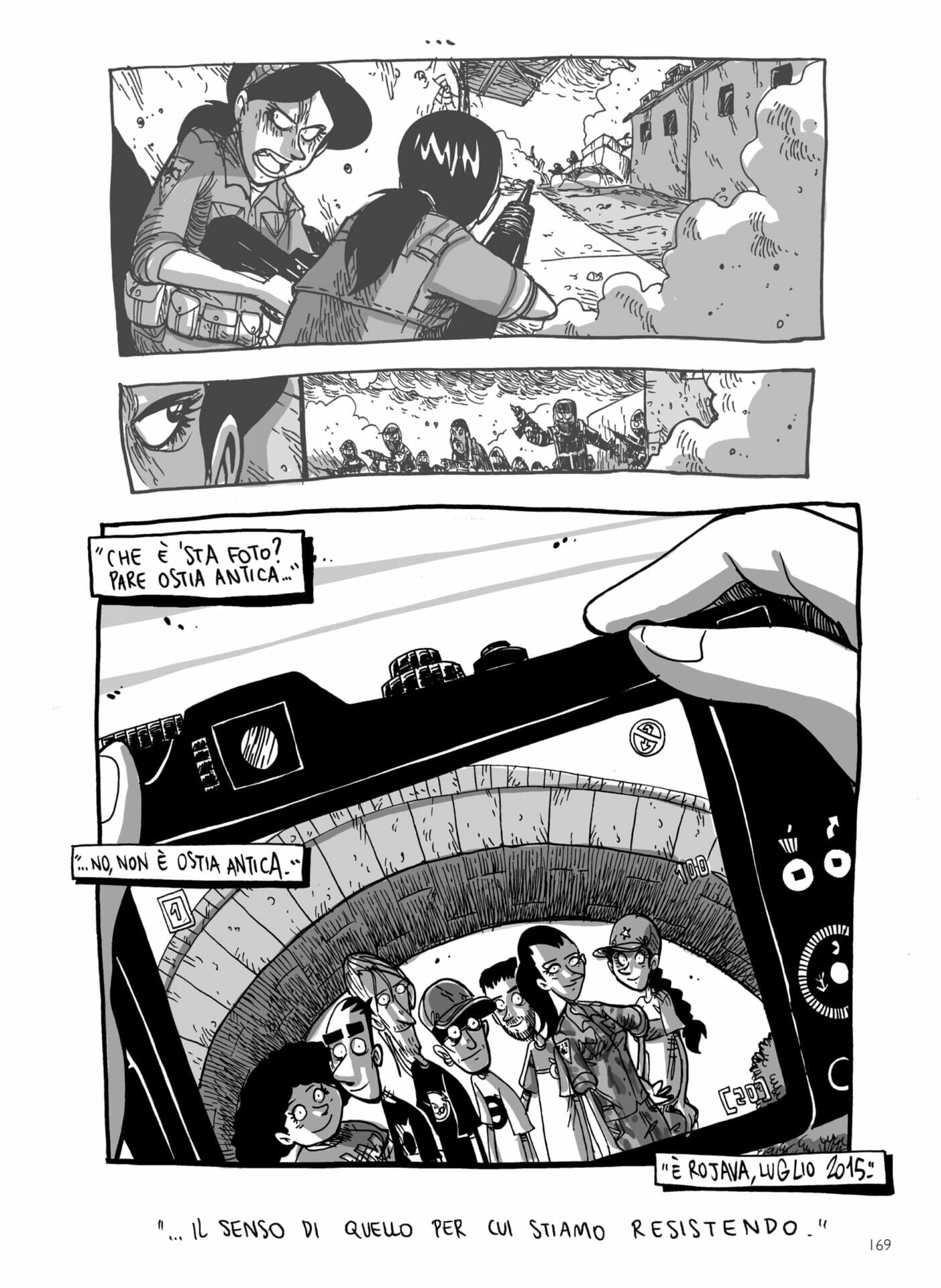
When journalism meets comics
Melding graphic novel and travelogue, Kobane Calling is one of the most brilliant and defining works yet by Zerocalcare. Humorous yet dramatic, entertaining yet informative, he deals with war by telling a personal story, just like Marjane Satrapi did with Persepolis. This graphic novel is proof that graphic journalism stands out as a solid genre, as works like The Photographer: Into War-Torn Afghanistan with Doctors Without Borders by Didier Lefèvre or Burma Chronicles by Guy Delisle showed.
Tag
Buy a ☕ for Hypercritic







